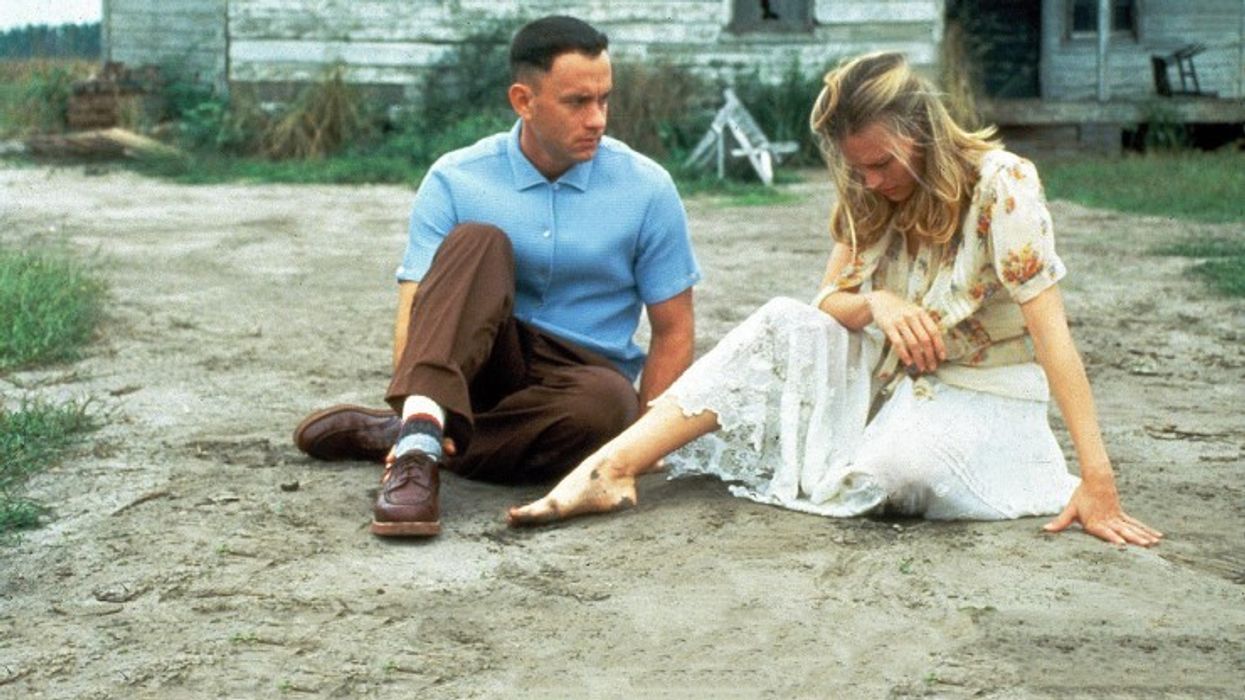What Is Aphorism?
Give your characters something memorable to say.

'Forrest Gump'
There are so many literary devices that writers have used for hundreds of years, and many of them have slipped their way into the filmmaking lexicon.
One such word is "aphorism," which I learned and now strive for in most dialogue situations. While monologues and visuals play vital roles in storytelling, the power of concise and impactful wisdom cannot be underestimated.
This is where aphorisms come into play.
Aphorisms are short, thought-provoking statements that condense deep wisdom into just a few words. In this article, we'll delve into the definition of aphorism and its significance in filmmaking. Plus, we'll provide you with some examples.
Let's dive in.
What Is An Aphorism And How Is It Used? | Two Minute Writing Tipswww.youtube.com
Aphorism Definition

'A Few Good Men'
Credit: Columbia Pictures
An aphorism is a concise and memorable statement that conveys a universal truth or wisdom in a brief and striking manner.
These succinct expressions often pack a profound punch, offering insights or commentary on life, human nature, or the human condition. Aphorisms are known for their brevity, clarity, and ability to provoke thought and reflection.
Why Do Writers Use Aphorisms?
 'Star Wars: A New Hope'
'Star Wars: A New Hope'Credit: 20th Century Fox
In the world of filmmaking, aphorisms can serve as guiding principles, sources of inspiration, and even tools for character development and dialogue.
They also help with these things:
- Character Development: Aphorisms can help writers and directors distill the essence of a character's beliefs, values, or personality into a few words. For example, a character who lives by the aphorism "YOLO" (you only live once) instantly communicates their adventurous and spontaneous nature.
- Themes: Filmmakers often explore universal themes in their works, such as love, loss, or the passage of time. Aphorisms can encapsulate these themes, providing a focal point for the narrative and helping audiences connect with the story on a deeper level.
- Dialogue: Incorporating aphorisms into a character's dialogue can make their words more impactful and memorable. Imagine a dramatic moment in a film where a character declares, "The truth shall set you free." This not only reinforces the theme of honesty but also adds depth to character beliefs.
Aphorism Examples
 'Casablanca'
'Casablanca'Credit: Warner Bros.
There are so many examples of this, you can basically pick out half the most famous movies lines of all time to fit the bill.
But here's a handful I thought were applicable:
- "Life is like a box of chocolates. You never know what you're gonna get."Forrest Gump (Tom Hanks) in Forrest Gump (1994): This famous aphorism from the eponymous film encapsulates the unpredictable nature of life and serves as a central theme.
- "You can't handle the truth!" Colonel Nathan Jessup (Jack Nicholson) in A Few Good Men (1992): This powerful aphorism emphasizes the harsh reality that sometimes the truth can be too difficult to accept.
- "Here's looking at you, kid." Rick Blaine (Humphrey Bogart) in Casablanca (1942): This tender aphorism conveys love, nostalgia, and the enduring nature of certain relationships.
- "May the Force be with you."Various characters in the Star Wars franchise (1977-Present): This iconic aphorism serves as a guiding principle in the Star Wars universe, symbolizing hope, courage, and the battle between good and evil.
So, the next time you embark on a filmmaking journey, remember the potential of aphorisms to infuse your project with wisdom and meaning.
Let me know what you think in the comments.
- What Is a Colloquialism? Definition and Examples for Writers ›
- 50+ Literary Devices You Need to Know for Your Screenwriting ›











